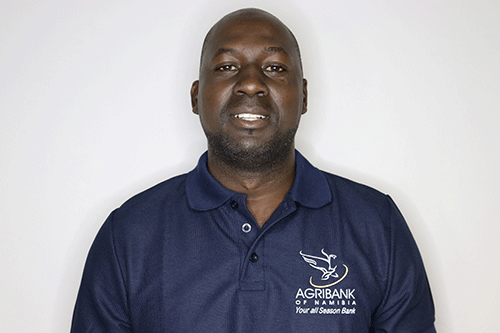Erastus Seuakouje Ngaruka is a part-time livestock, poultry and crop farmer in Epukiro, Omaheke region. Ngaruka was born a farmer, grew up farming and survives from farming.
“Livestock farming in my community is a tradition or a culture. However, it goes with passion as well. I have a strong passion for farming. I tend to draw my inspiration from the fact that our livelihood is deeply and irreversibly dependent on livestock farming; that is our identity, pride and socio-economic base,” he stated.
Ngaruka said farming is a source of income for many things at the household level, inclusive of education and social well-being in general.
He farms on communal land at Okomumbonde village, producing Damara sheep, Kalahari red goats, Bonsmara cross cattle, Australorp chickens, dogs (Greyhounds) and some vegetables.
Ngaruka also makes fodder for his livestock and sells the surplus from his cultivated pasture, crop residues and forage resources.
“This is an effort of farm enterprise diversification and an integrated farming system,” he said.
He sells his cattle at auctions or on local permit days. The sheep and goats are sold for breeding materials to other farmers and as meat for individuals, cultural/traditional and other festive events.
His chickens are sold for breeding purposes and meat. The dogs are part of the business and are used for breeding or sold to other farmers. Ngaruka owns a hammer mill, which he uses to process fodder for his livestock and generate an income when processing for other farmers.
Farming contributed and still contributes positively towards his character building. It continues to strengthen his passion, knowledge and skills. Thus, he joyfully takes it as a career and business.
Some of Ngaruka’s challenges he experienced during his farming journey were stock theft, drought, poisonous plants and predators.
Ngaruka considers his best experiences to be breeding his animals to achieve certain traits of interest, of which he is starting to see gradual change.
Secondly, he survived the previous drought years with minimum worries because he could produce and process his fodder.
Having people admire and purchase his livestock is among his best experiences, Ngaruka said.
“Farming is the only undertaking that has and will continue to sustain our livelihoods and achieve food self-sufficiency. To succeed or be comfortable with farming, you need three things, which are time, information/skill and always doing the basic things correctly,” he advised. – Agribank



